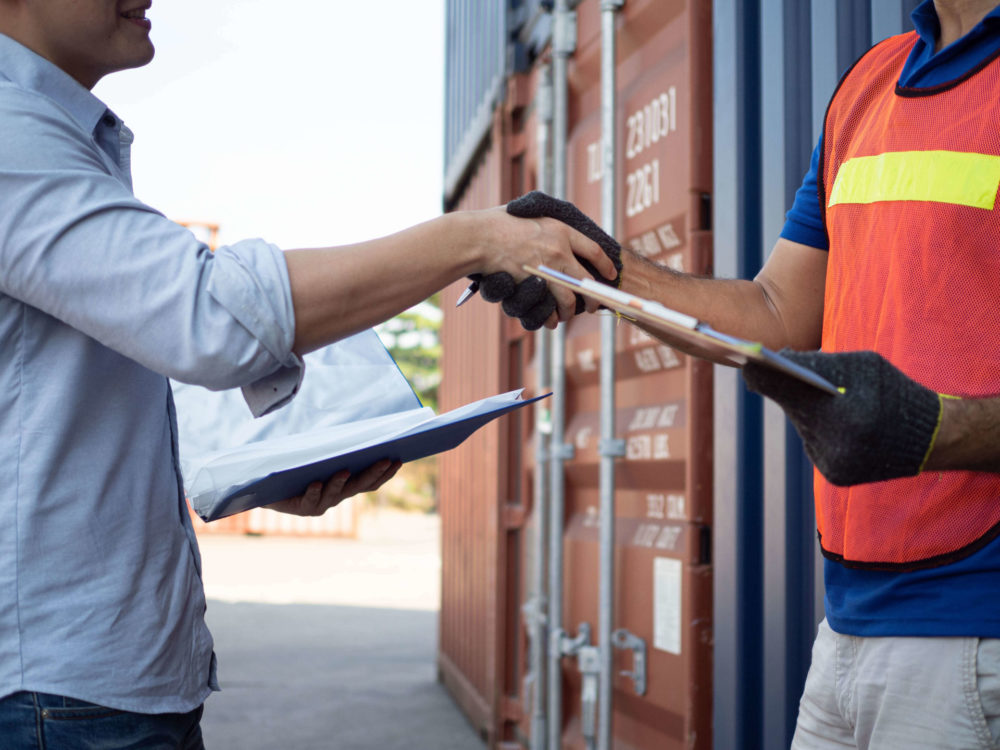Being an intermodal truck driver is one of today’s most rewarding, yet challenging and demanding careers. As a commercial vehicle operating at the center of three different transportation modes—ship, rail, and truck—it takes dedication and skill to successfully transport goods across states or countries. From managing changing regulations to understanding complex shipping systems, it pays off in reliability for those who choose this profession.
So if you’re considering taking on the position as an intermodal truck driver yourself or just curious about what it entails, read on! This post will provide you with an overview of all things that come along with intermodal trucking.
What’s an Intermodal Truck Driver?
They transport intermodal containers, which are large shipping containers that can be easily transferred from one mode of transportation to another (e.g., from a truck to a ship or train). Intermodal truck drivers typically pick up containers from a shipping terminal or container yard and then transport them to their final destination, which could be another terminal, a port, a rail yard, or a customer’s location. They may also be responsible for loading and unloading the containers onto and off of their trucks, and for ensuring that the containers are securely fastened to their vehicles.
In addition to operating skills, intermodal truck drivers should be able to work efficiently and effectively, and should be able to follow safety protocols and regulations.
Qualifications for an Intermodal Truck Driver
- Possess a valid commercial driver’s license (CDL) with a hazardous materials endorsement
- Be at least 21 years old (some states may require a higher minimum age)
- Pass a physical exam and drug test
- Have a clean driving record
- Have a good work history and strong communication skills
- Be able to pass a background check
- Have a basic knowledge of cargo securement
In addition to these requirements, some employers may also prefer to hire intermodal truck drivers who have experience driving various types of vehicles (e.g., straight trucks, semi trucks, box trucks), and who are familiar with electronic logging devices (ELDs) and other technology used in the trucking industry. Some employers may also require a high school diploma or GED.
Benefits of Being an Intermodal Truck Driver
A career in intermodal truck driving has many advantages. Intermodal truck drivers should continue to be in high demand, and they generally earn a decent salary. Additionally, intermodal truck drivers have the freedom to select between full- and part-time employment as well as between local, regional, and long-distance routes. Lastly, since they transport containers to and from various sites, intermodal truck drivers often get the chance to experience a range of scenery along the way.
Steps to Break into the Intermodal Trucking Market
- Obtain the necessary equipment: Intermodal trucking requires specialized equipment, such as chassis and trailers designed for transporting containers by rail or ship. The trucking company will need to invest in this equipment or lease it from a third party.
- Secure contracts with shippers: To transport intermodal loads, the trucking company will need to secure contracts with shippers who have cargo that needs to be transported using a combination of modes. This may involve reaching out to potential clients and pitching the company’s intermodal transportation services.
- Obtain the necessary permits and certifications: Intermodal trucking may require additional permits and certifications, such as the Transportation Worker Identification Credential (TWIC) for accessing secure port areas. The trucking company will need to ensure that it has all of the necessary permits and certifications in place to legally transport intermodal loads.
- Build relationships with rail and shipping companies: Intermodal trucking often involves working with rail and shipping companies to transport goods between different modes. The trucking company should work to build relationships with these companies to secure ongoing business and establish itself in the intermodal market.
- Work with an independent insurance agent who understands the UIIA and obtain the right insurance coverage: To access ports, trucking companies must be registered with the United Intermodal Insurance Association (UIIA) and have special insurance coverage. Working with an independent insurance agent who understands the UIIA and the insurance requirements for intermodal trucking can help them obtain the necessary coverage and get approved for access to the port.
Breaking into the intermodal trucking market can be challenging, but with the right equipment, contracts, permits, relationships, and insurance coverage, a trucking company can successfully enter this market and grow its business.
Bottom Line
Being an intermodal truck driver is not for everyone, but it can be a great career choice for those who are up for the challenge. With long hours and time spent away from home, it’s important to make sure you have the proper insurance in case of any accidents or incidents that may occur while on the job.
Our team at Truck Insurance Quotes can help you get set up with the right coverage to protect yourself and your cargo. Give us a call today to learn more about what we can do for you.
Additional Resources
For an in-depth review on the cost of cargo insurance.
If you’re wondering, how much is insurance on a semi truck or do I need tractor trailer insurance.


